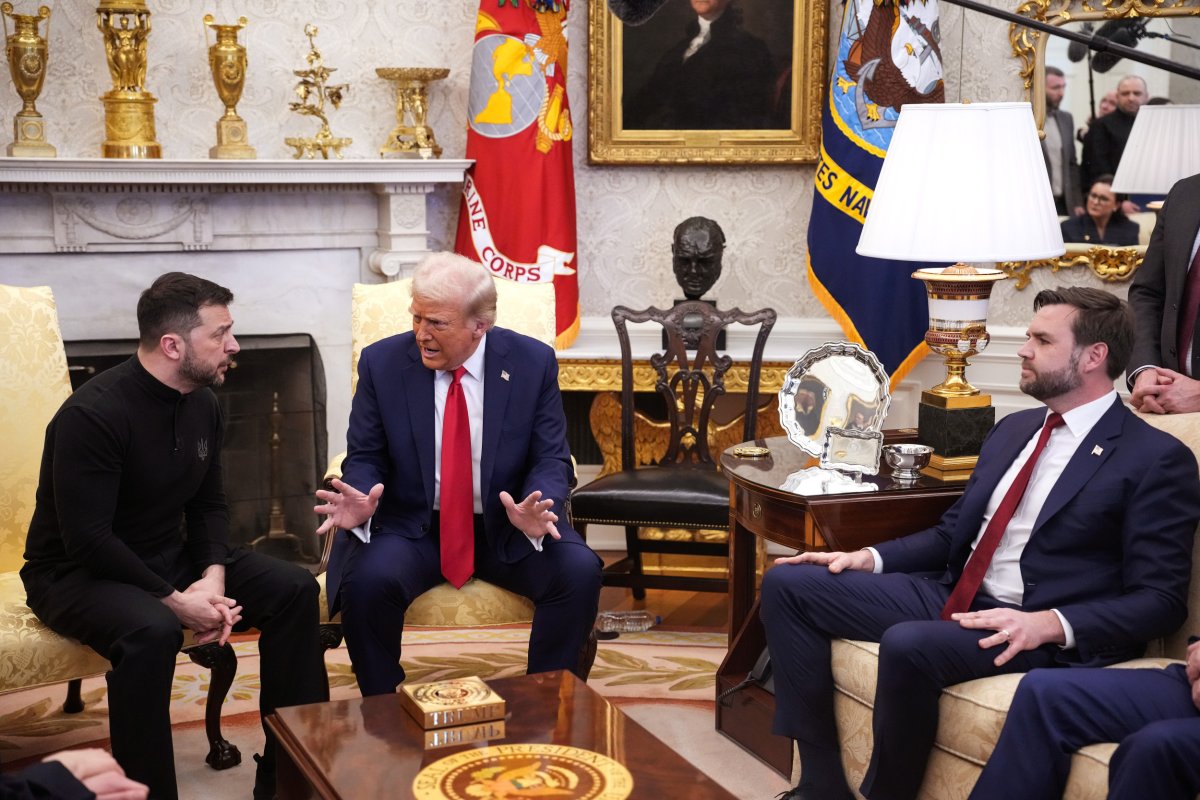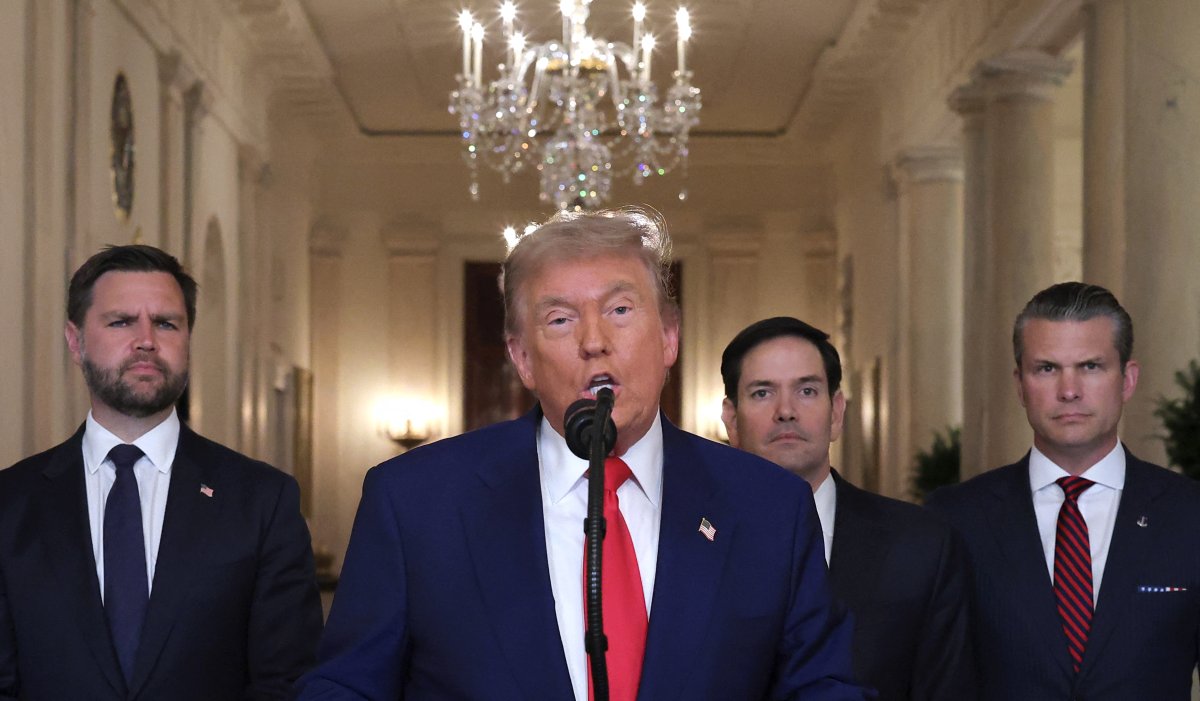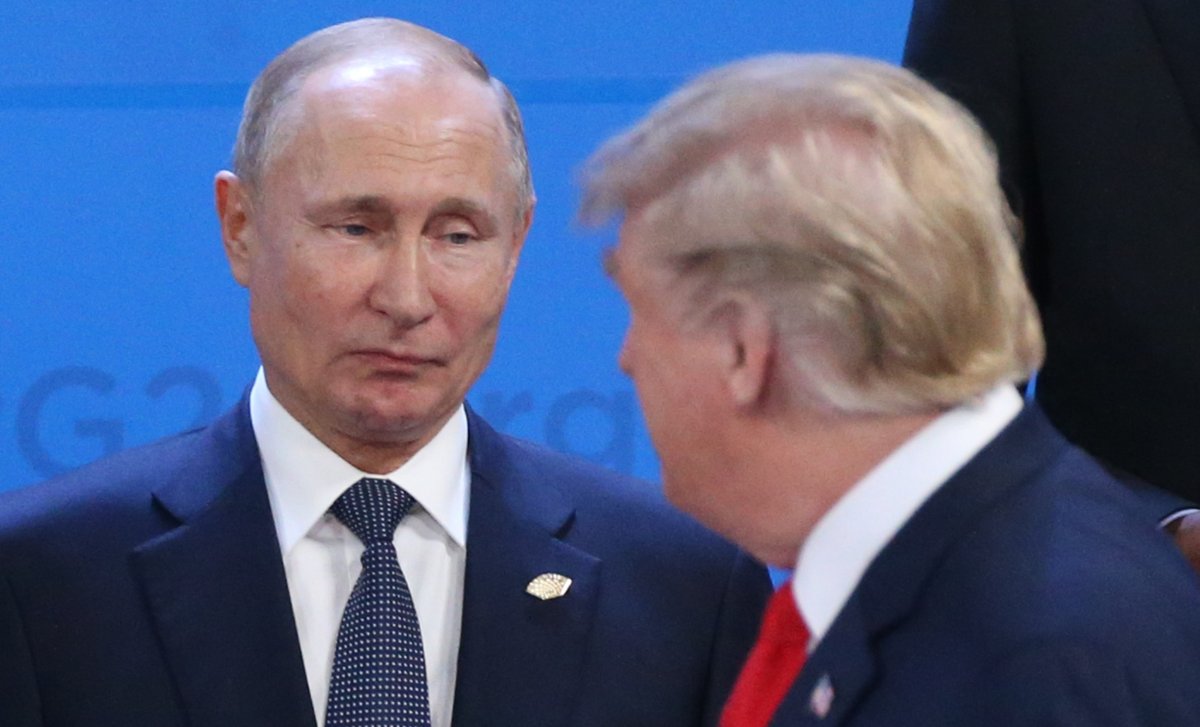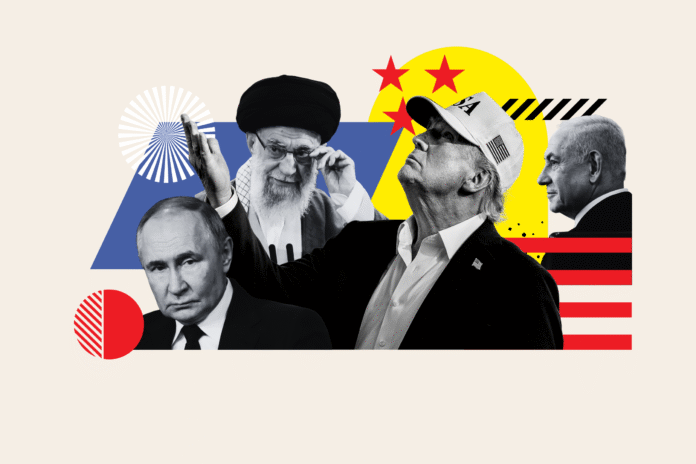When Donald Trump campaigned for the presidency in 2016, 2020 and 2024, he made one overarching promise to voters: no more costly overseas entanglements.
In a video rolling out his foreign policy agenda during the 2024 campaign, Trump called himself “the only president who rejected the catastrophic advice of many of Washington’s generals, bureaucrats, and the so-called diplomats who only know how to get us into conflict, but they don’t know how to get us out.”
Now, approaching six months into his second term, Trump has publicly toyed with the idea of annexing Canada and invading Greenland; ordered a series of missile strikes on Iran; and mused about the possibility of regime change in Tehran (he later backed off that threat), while also engaging in an on-again, off-again trade war with much of the world.
This week, the president intervened in the domestic politics of a sovereign country, surprising Brazil with the threat of a 50 percent baseline tariff over what he said was unfair treatment of Jair Bolsonaro, the former Brazilian leader and longtime Trump ally who is facing charges of trying to overturn his 2022 election loss.
“[T]he way Brazil has treated former President Bolsonaro … is an international disgrace,” Trump wrote in a letter to current President Luiz Inácio Lula da Silva, which he posted to Truth Social.
“Brazil is a sovereign nation with independent institutions and will not accept any form of tutelage,” Lula said in a terse response.

“No world leader has done more for global stability than President Trump, who in just six months has resolved conflicts between Israel and Iran, the Democratic Republic of the Congo and Rwanda, India and Pakistan, and more,” a White House spokesperson told Newsweek in a statement after this story was published. “Every action the President takes has put America First while bringing the world closer to peace.”
America First?
The whiplash between Trump’s isolationist campaign platform and his expansive actions as president has not gone unnoticed among his typically ironclad MAGA base, portions of which briefly revolted last month after the United States waded into Israel’s war with Iran over the latter’s nuclear program.
In the end, the conflict between Israel and Iran, which Trump dubbed the “12-Day War,” underscored a critical lesson for a globalized, interconnected era: campaigning on a retreat from the world stage is easy. Following through is another matter.
“I’ve seen nothing to suggest that Trump is an isolationist or has retreated from the global stage since taking office,” said Thomas Graham, a distinguished fellow at the Council on Foreign Relations (CFR) and former senior director for Russia on the National Security Council during the George W. Bush administration.
“Quite the contrary, he’s been more actively involved than [former President Joe] Biden was or [former President Barack] Obama was on the global stage.”
To be sure, there are some parts of the world that the U.S. has pulled back from since Trump first took office in 2017, though it is generally those allied with America who have been on the other side of that pullback.
The president has repeatedly raised questions about the U.S. commitment to NATO‘s Article 5, the heart and soul of the alliance’s collective defense pledge. He also sparked a trade war with the U.S.’s closest allies in Europe and North America, including Canada, the United Kingdom and France, prompting the European Union to reconsider whether it could count on the U.S. to be a steadfast ally and trading partner.
Tensions between the U.S. and its NATO allies have cooled off since most of the alliance’s member states agreed to increase their defense spending from 2 percent of GDP to 5 percent by 2035, which many Trump supporters say is proof that his hard-charging negotiating tactics, even among friends, produces results.

Andrew Harnik/Getty Images
The Trump administration also stunned European allies and Ukraine when it accused Kyiv, in the middle of fighting a war against Russian aggression, of taking advantage of the U.S., with Vice President JD Vance admonishing Ukrainian President Volodymyr Zelensky in a tense Oval Office meeting for not showing sufficient gratitude for American military aid.
In Mideast, Few Good Options
But as U.S. presidents have been learning for decades, the Middle East is a different beast. Even for someone like Trump, who excoriated his predecessors for becoming mired in conflicts in the region and made lofty promises about pulling U.S. troops out of Iraq and Afghanistan, the region’s interlocking conflicts have proven difficult to ignore, to say nothing of global energy markets.
Trump has been far from disengaged in the Middle East. In 2017, as one of the first major military decisions of his first term, Trump ordered a missile attack on a Syrian airbase in response to a chemical weapons attack on civilians that was largely believed to have been ordered by then-Syrian President Bashar al-Assad. In early 2020, Trump followed it up with a strike that killed Iran’s top military commander, Qassem Soleimani, in Iraq. This March, the president ordered a bombing campaign against Houthi rebels in Yemen.
And in late June, the U.S. formally entered Israel’s war with Iran by dropping 14 bunker-buster bombs and Tomahawk cruise missiles on the Iranian nuclear sites of Fordow, Natanz and Isfahan.
Trump’s decision to approve that strike is said to have come after days of back and forth that pitted the isolationists in his orbit, such as Tucker Carlson and Steve Bannon, against Iran hawks in Congress and the diplomatic establishment. In the end, Trump sided with the hawks and gave in to external pressure from the Israelis, becoming the first U.S. president to directly engage with Iran on its territory.

Carlos Barria/Getty Images
“I think Trump’s policy is very much, I don’t want to call it pragmatic, but it depends on the situation,” said Henri J. Barkey, an adjunct senior fellow at CFR who previously worked at the State Department during the Clinton administration.
“If he decides, ‘this is good for me,’ he’ll do it. I think that’s the most important criteria. The most important criteria is how does this affect his prospects, his own vision of himself, but also how will it play with the public at home?”
“He’s an opportunist rather than having a real foreign policy,” Barkey added.
Trump celebrated the Iran strikes as a triumph and followed them by brokering an immediate ceasefire between Iran and Israel — which has since held — while claiming that the bombs “completely and totally” obliterated the country’s nuclear program.
The true extent of the damage to Iran’s nuclear program remains unknown. A Republican lawmaker said after a classified briefing that “most” of Iran’s enriched uranium is “still there.” Iran also ended its cooperation with the United Nations‘ nuclear watchdog in response to the U.S. and Israeli strikes, further limiting inspectors’ ability to track whether Tehran is getting close to developing a nuclear weapon. The Pentagon now says it believes it set back Iran’s nuclear ambitions by one or two years.
The Putin Problem
Then there are other foreign entanglements, like the Russia-Ukraine war, which Trump said he would end on “Day One” of his second term — at the latest.
“Before I even arrive at the Oval Office, shortly after we win the presidency, I will have the horrible war between Russia and Ukraine settled,” Trump told supporters at a rally in March 2024. “I know them both very well and we will restore peace through strength. Get that war settled, it’s a bad war.”
He reiterated that in October, during an interview with podcast host Patrick Bet-David: “I think the world is going to behave and I think I will settle Russia-Ukraine while I’m president-elect.”
“You need that credibility,” he tacked on.

Mikhail Svetlov/Getty Images
Six months after his inauguration, that war continues to rage, with the Russians making frontline advances and unleashing some of their deadliest strikes on Ukrainian territory yet as negotiations to end the conflict appear stalled.
“Our commitment hasn’t changed,” State Department spokesperson Tammy Bruce said at a July 1 press conference. “The nature of how we’re able to make a commitment is going to be based on what is best for America first. It is the president’s point of view, his guiding hand, about the nature of what needs to occur. And it is certainly two nations at war and America has made a huge difference in that regard.”
It was not made clear what that “huge difference” was.
Graham, the former national security official in the Bush administration, told Newsweek the Russians appear to “believe they’re going to achieve their goals on the battlefield, there’s no reason to go to the negotiating table unless Ukraine is prepared to capitulate.”
Trump “has limited leverage over the Russians at this point and even if he continues supplying weapons to Ukraine or deploys additional sanctions, it’s not going to lead to an early end to the conflict,” he added.
Trump has also soured on Russian President Vladimir Putin for continuing to attack Ukraine while saying he wants a ceasefire. A visibly frustrated Trump accused his Russian counterpart this week of making “meaningless” gestures of friendliness toward the U.S. while “throwing a lot of bullshit at us.”
“Trump likes tough guys like Putin, but at the end of the day, he sees himself as the toughest of them all,” said Barkey, the former State Department official under Clinton. “The tough guys have to accept Trump as the ultimate power-holder, that he’s number one, and you don’t cross number one.”
Green Shoots in Gaza?
Trump has also taken on a key intermediary role in the war between Israel and Hamas in the Gaza Strip, a bloody conflict that has been ongoing since Hamas attacked Israel on October 7, 2023. Trump has floated the idea of a U.S. “take over” of the Gaza Strip and initially refused to rule out putting Americans boots on the ground to make it happen, though he’s since softened his tone.

MOIZ SALHI/Middle East Images/AFP via Getty Images
Earlier this month, the president announced that Israel had agreed to a 60-day ceasefire in Gaza. It remains to be seen whether Hamas will accept the deal and, if it does, whether the truce will hold or if it will break down as it has before, with both sides accusing each other of violations.
The White House has been optimistic that a ceasefire was within reach, but a source within Hamas pushed back on that, telling Newsweek there’s been “no progress” toward a deal.
Trump has “struck Iran, he’s engaged in negotiations over the Russia-Ukraine war, he is engaged, like it or not, in a tariff war with the entire globe at this point,” Graham said. “He has had complicated relationships with Mexico and Canada, he’s aspired to take over Greenland. This is not isolationism by any stretch of the imagination. And we’re only six months into the administration.”
Graham contrasted Trump’s leadership style with past presidents who focused on building alliances and spreading values, saying his strategy is “much more transactional.”
“He thinks of global affairs as bilateral competitions and he wants to win every competition.”


























